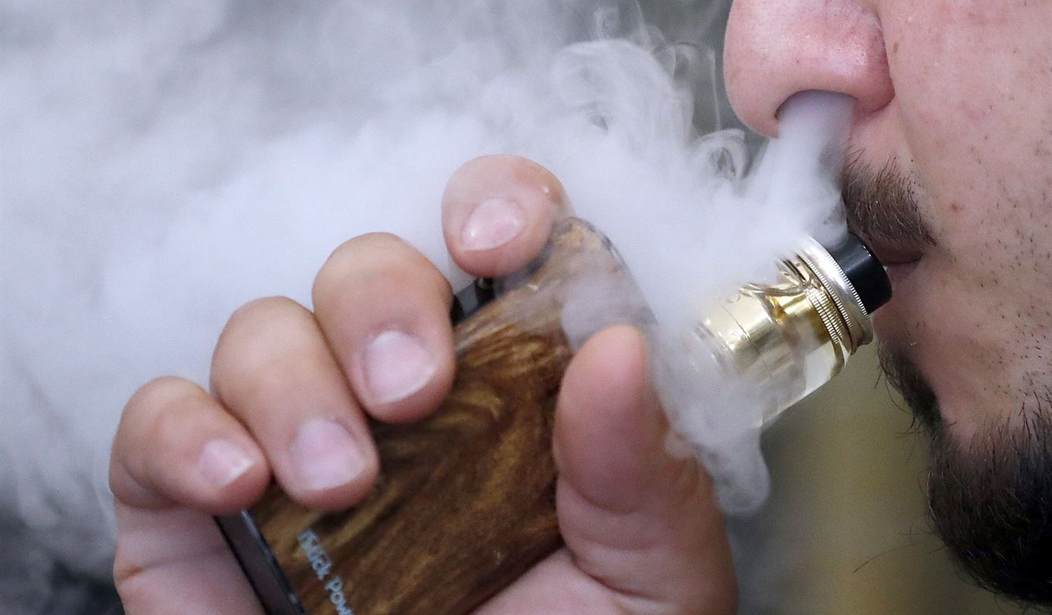It’s a familiar tactic—hysterically wailing about the imperiled health of children as an excuse to ban products for adults. And nowhere have we seen it invoked more than we have in the nanny state war against e-cigarettes, or vapes as they are more commonly called. Thankfully, the tired tactic is showing its wear in this case and not getting the job done.
The anti-vape activists, regulators, and politicians — whose generally asinine efforts in addition to child health scaremongering thankfully continue to be foiled — have pivoted to a new bogeyman: imported e-cigarettes and vaping tools from foreign nations such as China.
Though I do not partake, I am on record all over the place as being strongly in favor of the vaping industry as a whole. As a former smoker, I know all too well the brutal process of kicking the habit and I view e-cigarettes as one of the most important advances of my lifetime. My biggest concern is government chipping away at the rights of consumers to vape the product they prefer to overcome the nightmarish addiction to combustible cigarettes. Simply put, if flavored vapes (which are squarely in the crosshairs of the nannies) do it for them, they should have access to those products.
A recent hearing on Capitol Hill, “Combatting the Youth Vaping Epidemic by Enhancing Enforcement Against Illegal E-Cigarettes,” served to amplify the e-cig noise by suggesting that all imports are somehow illegal and target children with flavored vapes. Federal regulators from the U.S. Food and Drug Administration (FDA) faced questioning from lawmakers on the Senate Judiciary Committee on the agency’s failure to enforce a ban on unauthorized e-cigarette sales. The problem is that the FDA has set up a system to effectively ban flavored vapes and as many vaping products as they can by never approving new products.
The history of how tobacco regulators shifted over to having authority over vaping is instructive. In 2009, Congress granted the FDA authority over the sale of tobacco products. In 2016, the agency expanded the definition of tobacco to cover e-cigarettes, even though not all nicotine vape products are derived from tobacco. In addition, the FDA forced all vaping products to go through an approval process, even those that had been on the market for years.
What they are doing, effectively, is implementing a ban.
The FDA has used this flawed process to authorize more than 1,500 new cigarettes and more than 11,000 combustible tobacco products over the last five years, but zero new electronic nicotine delivery systems. These failures of the agency and our regulatory process have left consumers with just eight legal vaping products. It’s time for lawmakers to stop focusing on where e-cigarettes are manufactured and shift their attention to creating a smart regulatory process that will in turn create a free, diverse marketplace that allows adult consumers to make choices about their nicotine consumption.
The Senate hearing allowed some to push baseless arguments into the public debate. A voice of sanity on the panel is Tony Abboud of the Vapor Technology Association. He pushed back on the nonsensical arguments, particularly that imported flavored vape products target kids.
Related: Banning TikTok Is a First Amendment Infringement, and a Total Gift To Facebook
The rhetoric from both parties surrounding imported products from abroad is far too familiar. China will always be a target, but when will these lawmakers look inward at the broken regulatory process in the U.S. that has left us with an unregulated market that robs consumers of choice? The reality is the regulatory process for the American nicotine marketplace is broken.
The FDA and Congress should be prioritizing the tens of millions of American consumers who are demanding choice, including flavored vapes. A fair and properly regulated marketplace will solve the problems consumers face when it comes to imports instead of creating a new excuse to use regulatory power to ban them all.










Join the conversation as a VIP Member